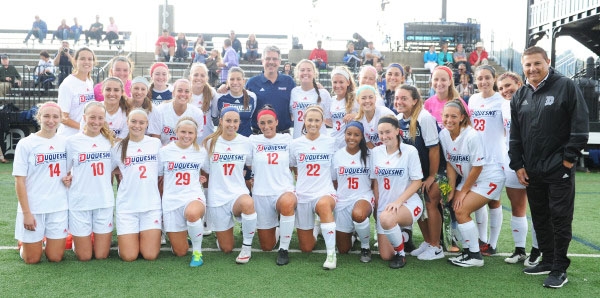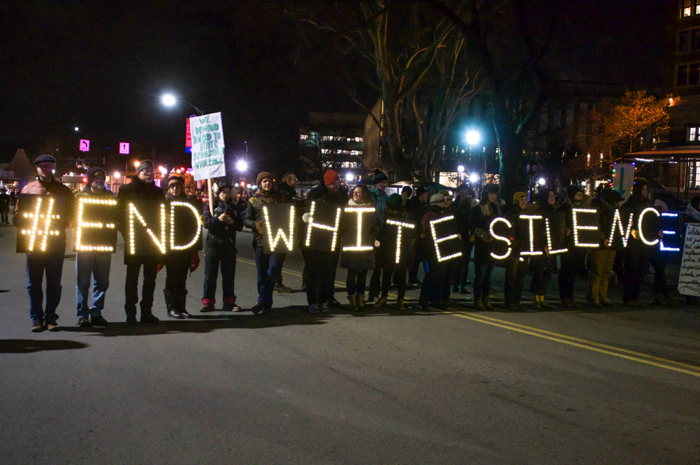09/13/2018
By Timothy Rush | Staff Columnist
“They have us in cells designed for one man with two men. They put these big plates over our windows, where we can’t see outside. 90 percent of the rooms here don’t have any lockers, chairs, or tables. The top bunk is almost six feet from the ground. There’s no ladder. We have men in their late forties on up trying to access these beds to sleep on.”
These are the words of a South Carolina inmate during an interview with the New Yorker. Over a contraband phone, this single inmate goes over the horrid conditions that he and his fellow prisoners go through every day. Describing water that smells of sewage on the weekends, to working for the bare minimum pay of 32 cents, and the abhorrent living conditions. And he is not alone.
This inmate reached out to the New Yorker as part of a nationwide strike that began on the 21st of August. Set to begin a year ahead in time, the strike was accelerated to this year following the Lee Correctional Facility Riot, which occurred on April 15 and resulted in seven slain inmates and 22 injured.
Across the U.S., various people engaged in protests to fight against the unjust treatment they have suffered. In California’s Folsom State Prison, inmate Heriberto Garcia used a contraband phone to capture his brave hunger strike and posted it on Twitter. In Indiana’s Wabash Valley Correctional Facility, various inmates refused to eat. In Washington on Aug. 27, several detained immigrants at a Tacoma facility began their hunger strike, one doing so for two weeks. In several facilities across the country, brave people stood up for their rights and their dignity as human beings.
The best way to commemorate their protest is to understand why it was necessary. Prison labor is among the foremost of their complaints. You know how we talk about raising the minimum wage because $7.25 is not enough to live on? Prisoners in Georgia make nothing for the time they work, same with Arkansas and Texas. The average daily wage for a prisoner in the U.S. is $3.45, and that’s a decline from 2001’s $4.73. Imagine that! Imagine being put to work every day, and all you have to show for it is $3 and some change.
These “jobs” vary from answering customer service calls, making consumer goods such as clothes and packaging items for big name companies. One of these companies is the well-known and well-loved coffee giant Starbucks. In various prisons across the U.S., prisoners work packaging Starbucks cups to be sold at your local Starbucks. It might not seem so bad until you remember the price of a cup of coffee from Starbucks versus how much these prisoners are paid. Many of these workers, after a full day of work, can’t even afford to buy a cup of coffee in the cups they spent all day packaging. To quote the New Yorker interview “If that ain’t slavery…”
While the prisoners are not making any money, they are expected to rehabilitate to be put back into society. For the man that the New Yorker interviewed, rehabilitation is something wholly different than what we may think it is. For this man, rehabilitation is regularly being subjected to poor conditions, undrinkable water on the weekends, and rooms made for one that is roomed with two. For him, the only source of sanity is having his cell phone, a contraband item that is being cracked down on.
To make things even worse, many of the people who are put through this can’t vote. Several states across the U.S. have what is called “felony disenfranchisement,” which is when felons are deprived of their right to vote because of their felon status. While some states, like Pennsylvania, lift this upon release, other states like Florida and Virginia require petitions in order to get their right to vote back. For a lot of people that go through these conditions, they have to literally rely on the kindness of strangers to fight this battle for them, as they have been effectively disenfranchised by the very governments that were made to guarantee them their rights.
The nationwide strike officially ended on Sunday, Sept. 9, but as they wrap up let us not forget their struggles and let us not allow the strike to end the current push. Call your congressman and keep up with the campaigns of the Incarcerated Workers Organizing Committee, a labor union fighting for the rights of incarcerated peoples.
And for any Duquesne students that may be from Florida, this coming ballot is an important one for this issue. Florida Amendment 4, to be voted on Nov. 6, will restore felons’ right to vote once their sentence is fulfilled. If Florida can get this amendment passed, it will be another victory for the rights of incarcerated peoples.




